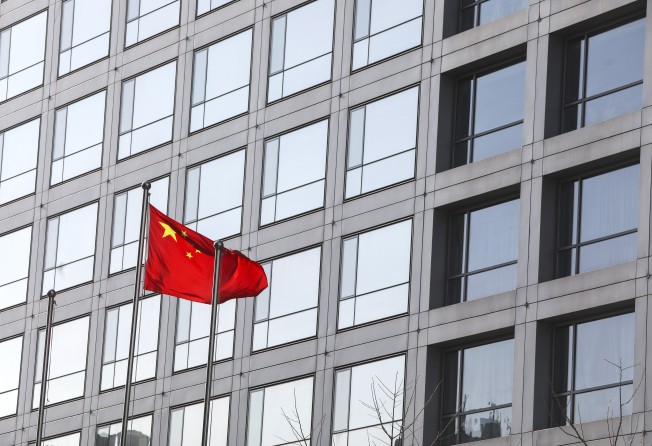China amends Anti-Monopoly Law for the first time amid tech crackdown, increasing penalties and regulatory control
- China’s draft amendment for the 13-year-old Anti-Monopoly Law calls for greater control of the tech sector and increases regulators’ discretionary power
- The amended law is expected to take effect sometime in 2022

China is amending its Anti-Monopoly Law for the first time since it came into force in 2008, beefing up antitrust penalties in an explicit push for more control over the digital sector.
A draft amendment of the law was submitted to the Standing Committee of the National People’s Congress for a first reading last week, with the final version expected to be rolled out sometime next year.
The draft significantly increases penalties, expands the discretionary power of the State Administration for Market Regulation (SAMR), and “sends a clear signal of tightening control over tech firms”, according to Angela Zhang, an associate professor at the University of Hong Kong’s Faculty of Law.
Among the increased penalties are a tenfold increase in the maximum fine for a procedural failure to notify authorities of a merger transaction, raising it to 5 million yuan (US$783,000). This applies even if the transaction does not pose an anticompetitive threat, Zhang noted.
The new rules would also allow the SAMR to impose fines of up to 1 million yuan on individuals directly responsible for violating the law, including legal representatives, directors and other employees. This is a first for China, lawyers from Baker McKenzie noted on the firm’s website this week.
Among the SAMR’s increased discretionary power is the ability to increase fines when it is difficult to calculate a company’s illegal gains. For violations considered “particularly severe”, fines can be increased to up to five times the amount stipulated.
“[The draft amendments] add to the Anti-Monopoly Law’s flexibility and deterrent effect,” said Du Guangpu, an antitrust lawyer with the Jingsh Law Firm in Beijing. “The existing version doesn’t have enough deterrent effect.”
The amendment comes 10 months after Beijing kicked off an antitrust investigation into Alibaba Group Holding, owner of the South China Morning Post, which led to a prolonged campaign against perceived abuses from Big Tech firms. Alibaba and on-demand delivery giant Meituan were both hit with major fines for violations of the Anti-Monopoly Law this year.
Strengthening antitrust enforcement and “preventing the disorderly expansion of capital” have been at the top of regulators’ agenda this year, with crackdowns expected to continue as Chinese President Xi Jinping pursues “common prosperity”, government buzzword used to represent China’s push to narrow the wealth gap. Fair competition is necessary for improving the socialist market economy, Xi said in August.
The amendment also calls for “enriching the anti-monopoly regulatory force”, and the SAMR has already been seeking to expand its understaffed antitrust enforcement operations. The agency’s antitrust bureau made a job posting on October 14 looking for 18 new staff members “to conduct antitrust policy research, legal enforcement and investigations into the concentration of operators”, the first major recruitment drive since the bureau was formed in 2018.
“Compared to mature economies such as the United States and the European jurisdictions, China’s anti-monopoly law enforcement authorities are still quite ‘young’, and our law enforcement is far behind that of other countries in terms of staffing,” said Wu Zhenguo, director general of the SAMR, in an interview in May with Antitrust Source, a publication run by the American Bar Association.
Increased scrutiny of the technology sector is explicitly spelt out in some parts of the amended law.
Article 37, for example, specifies that the enforcement priority for merger reviews will be areas that concern people’s livelihood, finance, technology and media.
“It is quite unusual to incorporate enforcement priorities in a national law,” University of Hong Kong’s Zhang said.
It also says that businesses shall not “exclude or limit” competition by abusing data, algorithms, technology, capital advantages or platform rules. A dominant player engaging in these activities is considered to be abusing its market power, according to the law.
“The Anti-Monopoly Law is generally considered to be a product of the industrial age. But the digital economy has developed rapidly in the past two decades, and many problems have emerged,” said Jingsh Law Firm’s Du. “[The draft amendment] is also a response to that.”
Du added that the amendment also includes additional technical adjustments. Among these are a “stop-the-clock” mechanism that would allow a merger review to be suspended if companies do not submit required documents on time or new facts about the deal emerge before approval.